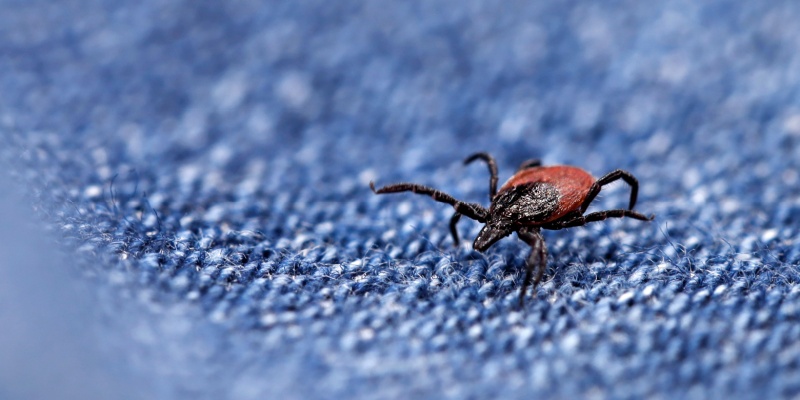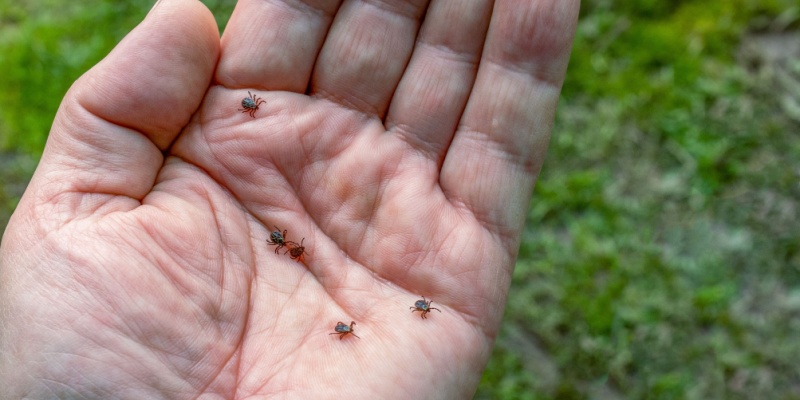Portland, Maine’s beautiful outdoor spaces—from the Eastern Promenade to Baxter Woods and beyond—provide wonderful opportunities for recreation and relaxation. However, these same environments also harbor ticks that can pose significant health risks to both people and pets. With tick-borne illnesses like Lyme disease reaching record numbers in Maine, protecting your family and pets has never been more important.
Understanding the Tick Threat in Portland
Portland’s abundant green spaces, wooded areas, and even residential yards provide ideal habitats for ticks, particularly the blacklegged tick (deer tick) that transmits Lyme disease and other infections. Cumberland County consistently reports high numbers of tick-borne disease cases, making tick prevention a necessary part of outdoor safety for Portland residents.
Protecting Your Family from Ticks
Before Going Outdoors:
1. Dress Defensively
- Wear light-colored clothing to make ticks more visible
- Choose long-sleeved shirts and long pants
- Tuck pants into socks to create a barrier
- Wear closed-toe shoes, preferably hiking boots or shoes with a tight weave
2. Use Appropriate Repellents
- Apply EPA-registered repellents containing DEET, picaridin, IR3535, or oil of lemon eucalyptus to exposed skin
- Follow product instructions carefully, especially when applying to children
- Treat clothing, boots, and camping gear with products containing 0.5% permethrin
3. Plan Your Activities
- Stay on trails when hiking
- Avoid walking through tall grass and leaf litter
- Sit on blankets or chairs instead of directly on the ground
After Being Outdoors:
1. Perform Thorough Tick Checks
- Check your entire body using a hand-held or full-length mirror
- Pay special attention to under arms, in and around ears, inside belly button, behind knees, between legs, around waist, and in hair
- Shower within two hours of coming indoors to wash off unattached ticks
- Examine gear and pets before bringing them inside
2. Handle Clothing Properly
Remove clothing worn outdoors and examine it for ticks
Put clothes in a dryer on high heat for at least 10 minutes to kill any attached ticks
Wash clothes in hot water if they’re dirty, followed by drying on high heat
3. Know How to Remove a Tick Correctly
- Use fine-tipped tweezers to grasp the tick as close to the skin’s surface as possible
- Pull upward with steady, even pressure
- Don’t twist or jerk the tick, which can cause mouth parts to break off in the skin
- Clean the bite area and your hands with rubbing alcohol or soap and water
Managing Your Property to Reduce Tick Populations
Creating a tick-resistant landscape around your Portland home can significantly reduce your family’s and pets’ exposure to ticks:
1. Maintain Your Yard
- Keep grass short and remove leaf litter promptly
- Clear tall grasses and brush around houses and at the edge of lawns
- Place a 3-foot wide barrier of wood chips or gravel between lawns and wooded areas
- Stack wood neatly in dry areas to discourage rodent habitation
2. Discourage Wildlife Hosts
- Remove bird feeders during tick season or place them away from the house
- Construct barriers to keep deer out of your yard
- Eliminate ground-level water sources that attract animals
- Secure garbage in containers with tight-fitting lids
3. Consider Professional Tick Control Services
- Atlantic Pest Control offers targeted treatments for yards in Portland
- Professional applications can reduce tick populations by 68-100%
- Treatments focus on areas where ticks are most likely to be found
When to Seek Medical Attention
If you or a family member develops any of these symptoms after a tick bite, seek medical attention promptly:
- Rash, particularly the characteristic “bull’s-eye” rash of Lyme disease
- Fever and chills
- Fatigue
- Headache and muscle/joint pain
- Swollen lymph nodes
Early treatment of tick-borne diseases is crucial for preventing long-term complications.
The Atlantic Pest Control Approach to Tick Management
Our comprehensive tick control program for Portland homes includes:
1. Property Assessment
- We identify tick habitat and high-risk areas on your property
- We evaluate landscape features that may attract ticks and their hosts
- We develop a customized treatment plan based on your property’s specific needs
2. Targeted Treatments
- We apply barrier treatments to vegetation, focusing on transitional areas between woodlands and lawns
- We treat areas where pets and children play
- We implement strategies to reduce tick host populations
3. Integrated Pest Management
- We combine chemical and non-chemical approaches
- We recommend habitat modifications to create less favorable conditions for ticks
- We provide ongoing monitoring and adjustments as needed
4. Follow-Up Services
- We offer recurring treatments throughout tick season
- We provide additional applications after heavy rains
- We adjust our approach based on tick activity and property conditions
Don’t let ticks prevent you and your pets from enjoying Portland’s beautiful outdoor spaces. With proper prevention strategies and professional help from Atlantic Pest Control, you can significantly reduce your risk of tick encounters and tick-borne diseases. Contact us today to learn more about our effective tick control solutions for Portland residents.

